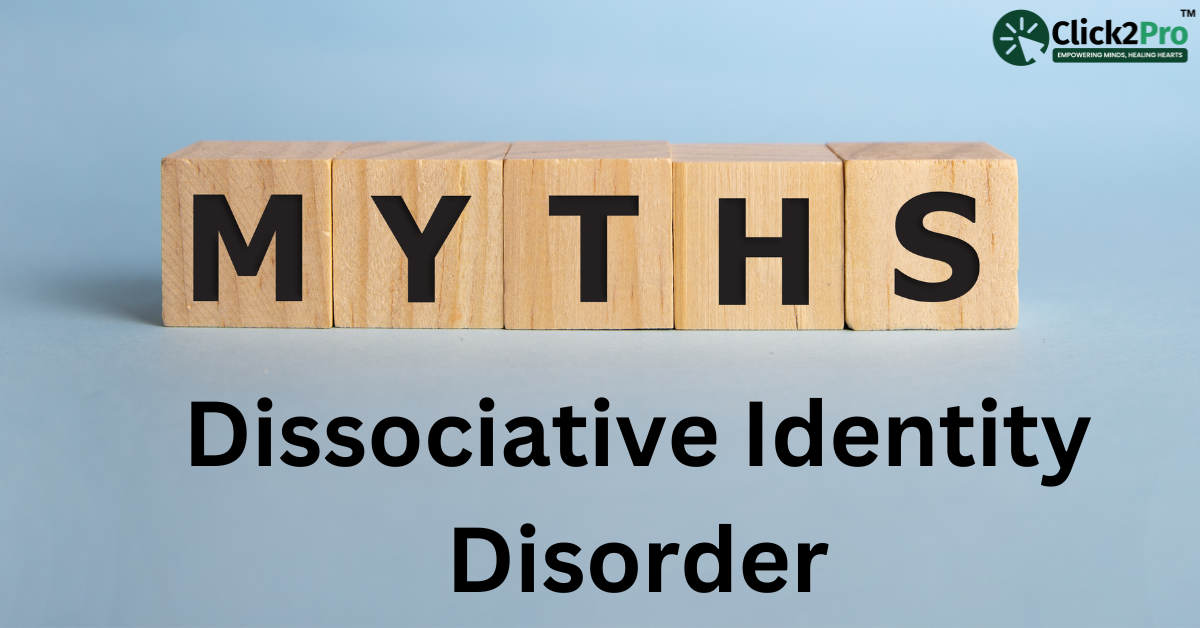
Debunking Myths About Dissociative Identity Disorder
Dissociative Identity Disorder (DID), formerly known as Multiple Personality Disorder, is a complex mental health condition often shrouded in misconceptions. These misunderstandings can lead to stigma and hinder effective treatment. This article aims to debunk common myths about DID and provide factual insights to foster a better understanding.
DID and Schizophrenia Are the Same
A prevalent misconception is that DID and schizophrenia are identical. In reality, they are distinct disorders with different symptoms and causes. Schizophrenia is characterized by hallucinations, delusions, and disorganized thinking, whereas DID involves the presence of two or more distinct identity states or personalities within a single individual. These identities may have unique names, ages, histories, and characteristics. Understanding this distinction is crucial for accurate diagnosis and treatment.
DID Is a Rare and Uncommon Disorder
Contrary to popular belief, DID is not exceedingly rare. Studies suggest that it affects approximately 1% of the general population, making it as prevalent as other mental health conditions like schizophrenia and bipolar disorder. However, due to underdiagnosis and misdiagnosis, many cases go unrecognized. In places like Bhatpara, increased awareness and education about DID can lead to better identification and support for those affected.
Individuals with DID Have Obvious and Dramatic Personality Switches
Media portrayals often depict individuals with DID experiencing sudden and dramatic personality changes. In reality, these transitions, known as "switches," can be subtle and may go unnoticed by others. Some individuals may experience amnesia between identity states, while others maintain awareness. The nature of these switches varies among individuals, and understanding this variability is essential for empathy and support.
DID Is a Result of Overactive Imagination or Role-Playing
Some skeptics argue that DID is merely a product of an overactive imagination or conscious role-playing. However, extensive research indicates that DID is a legitimate mental health condition often linked to severe trauma, particularly during early childhood. The development of multiple identities serves as a coping mechanism to compartmentalize and manage overwhelming experiences. This understanding underscores the importance of trauma-informed care in treatment.
DID Cannot Be Treated or Managed Effectively
While DID is a complex disorder, it is not untreatable. Therapeutic approaches such as psychotherapy in India, particularly trauma-focused therapies, have shown effectiveness in helping individuals integrate their identities and develop coping strategies. Treatment aims to improve functioning and quality of life, and with appropriate support, many individuals with DID lead fulfilling lives. Access to mental health services in Bhatpara, including online therapy in India, has expanded, providing more opportunities for individuals to seek help.
Impact of Myths on Individuals with DID
The perpetuation of these myths contributes to the stigma surrounding DID, leading to social isolation and reluctance to seek help. Misunderstandings can result in misdiagnosis, inappropriate treatment, and a lack of support from the community. In Bhatpara, as in other regions, fostering a supportive environment through education and awareness is vital for the well-being of individuals with DID.
Case Study: Priyanka Kumari
A notable example is Priyanka Kumari, who developed over 2,500 distinct personalities as a coping mechanism for severe childhood abuse. Her case highlights the profound impact of trauma and the human mind's resilience. Jeni's journey underscores the importance of understanding DID beyond myths and stereotypes.
Conclusion
Dissociative Identity Disorder is a complex condition that requires empathy, understanding, and accurate information. By debunking common myths and embracing factual knowledge, we can create a supportive environment for individuals with DID. In Bhatpara and beyond, promoting mental health awareness and education is essential for fostering a compassionate society.
FAQs
-
Is DID the same as having multiple personalities?
Yes, Dissociative Identity Disorder involves multiple distinct identities within a single individual, each with its own patterns of thinking and behavior.
-
Can DID develop without a history of trauma?
While severe trauma, especially in early childhood, is a common factor, DID can also develop due to other influences like genetics and environmental stressors.
-
Are individuals with DID aware of their different identities?
Awareness varies; some individuals may be conscious of their different identities, while others may experience amnesia between identity states.
-
Is DID a lifelong condition?
With appropriate treatment, individuals can manage DID effectively, and some may achieve integration of identities, leading to significant improvement in functioning.
-
How can I support someone with DID?
Educate yourself about the disorder, offer non-judgmental support, encourage them to seek professional help, and respect their experiences and boundaries.
Transform Your Life with Expert Guidance from Click2Pro
At Click2Pro, we provide expert guidance to empower your long-term personal growth and resilience. Our certified psychologists and therapists address anxiety, depression, and relationship issues with personalized care. Trust Click2Pro for compassionate support and proven strategies to build a fulfilling and balanced life. Embrace better mental health and well-being with India's top psychologists. Start your journey to a healthier, happier you with Click2Pro's trusted online counselling and therapy services.






